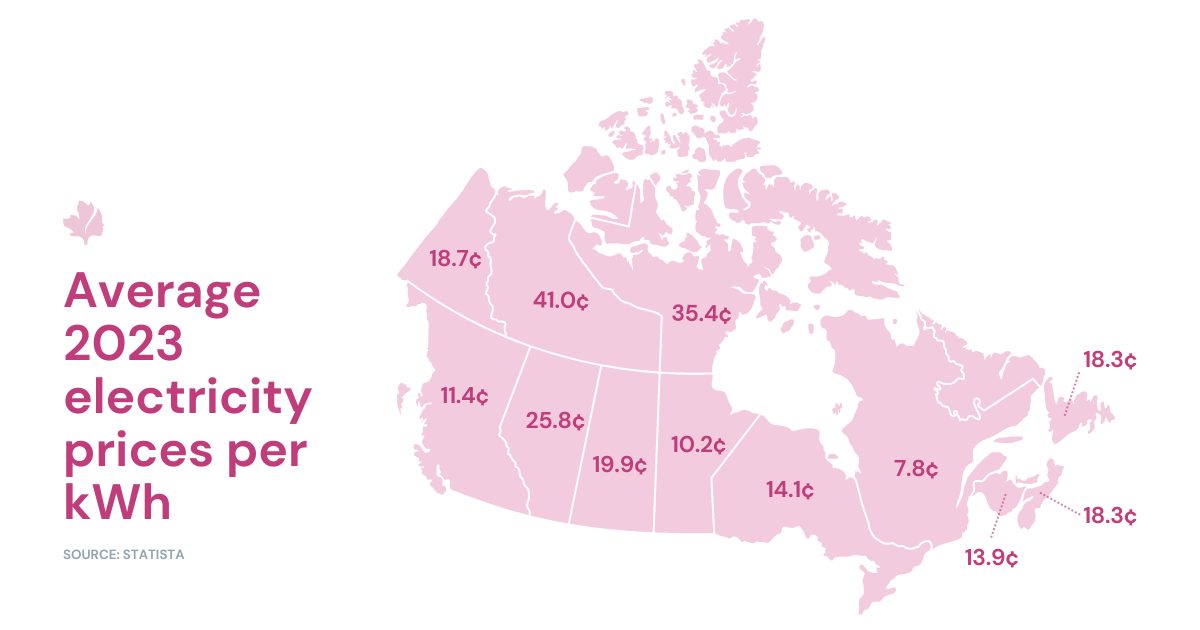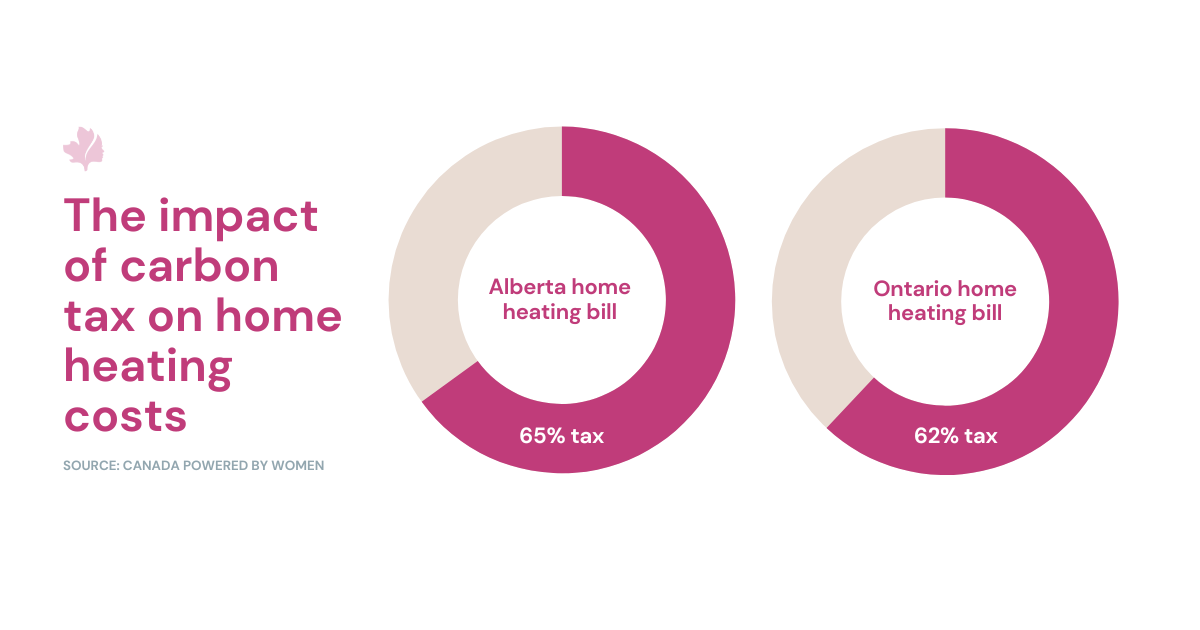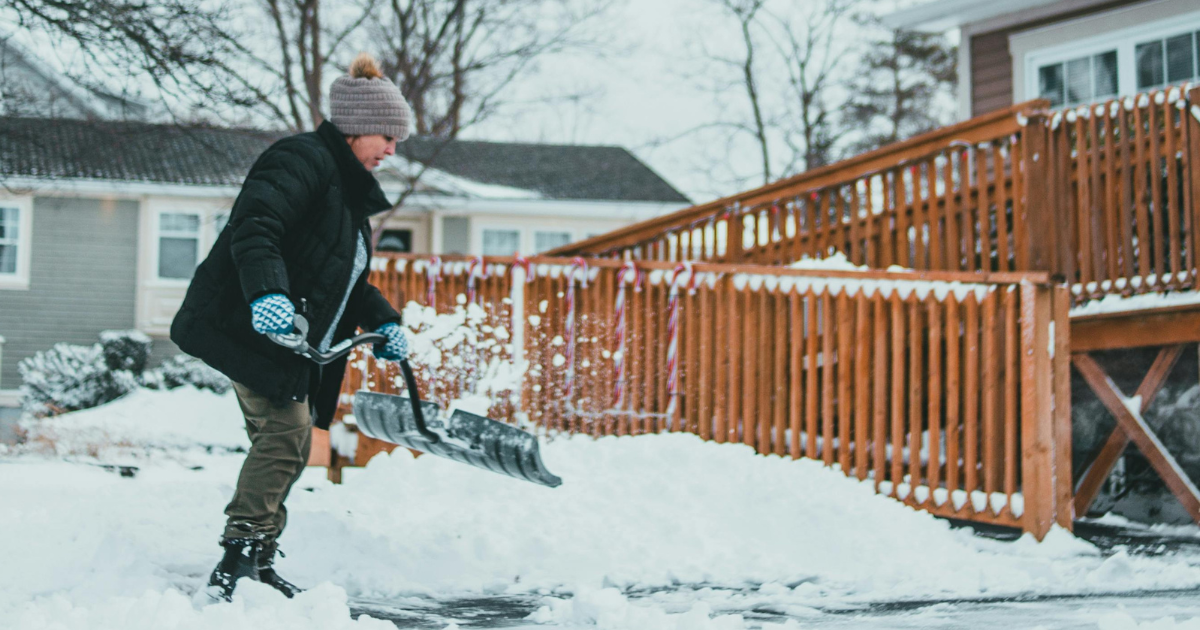Bills are one of life’s certainties, and in Canada, so is winter. When combined, the two add up to a growing affordability crisis across the country.
Lots has been said about the rising cost of daily essentials such as groceries and gas, but another factor weighing heavily on Canadians’ pocketbooks is the cost of heating their homes.
According to data from Statistics Canada:
- 15% of Canadians reduced or had to forgo necessities such as food or medicine for at least one month to pay an energy bill last year. To put that in perspective, based on the number of households there are in Canada today, roughly 2.5 million households had to forgo necessities in 2023.
- 14% of Canadian households kept their home at an unsafe or uncomfortable temperature because of unaffordable heating costs (approximately 2.3 million households).
- High energy prices also caused 10% of Canadian households (approximately 1.7 million households) to be late or unable to pay their energy bills in the past year.
In total, nearly 27% of households (4.5 million households) said it was difficult, or very difficult to meet financial needs in the second quarter of 2023.
These numbers concern us, and we know they are also a big concern for women across Canada who have told us they are adjusting their living conditions to keep costs down.
Engaged women are making trade-offs
Hilary Krauss, a 28-year-old who lives with her partner Mitch in Vancouver, told us that their apartment setting is now fixed at an “affordable” temperature, and they are now bundling up and adding layers of clothing to compensate for lower house temperatures.
Even those who can currently afford their heating bill are considering investing in technology such as solar panels to lower home heating costs over time.
“I want energy security and care about the environment,” said Angela Chung, a Calgary woman who told us she pays $400 per month for her utility bill. “The heating costs for my modest home are exorbitant. If I invest in solar panels, it will have an upfront cost. But I may break even in a decade, saving money in the long run.”
With costs ballooning, and concerns rising about affordability, that drove us to ask what exactly we are paying for in our energy bills.
Taxes are driving up energy costs
The three main components of your heating bill are energy charges, delivery and administration (what you pay utility companies), and various government taxes, including the federal carbon tax.
Used energy (GJ or KWH)
The gigajoules or kilowatt hours of energy you used in the billing period. (This number can be an estimate or exact number.)
Delivery charges
Delivery charges include fixed and variable costs based on the length of your billing period and natural gas consumption. Both charges are often summed on your heating bill under “Delivery Total.”
Rate riders
Provincial utility commissions approve temporary charges/credits. Rate riders adjust for under/over collection of approved costs.
Transmission charge
A fee for accessing high-voltage wires and towers to transmit power from generation plants to distribution systems.
Federal carbon tax
A federal government tax on natural gas consumption.
These numbers vary across Canada based on different energy and home heating sources, so we collected bills from people in Alberta (Calgary and Sylvan Lake), Ontario (Barrie and Whitby) and British Columbia (Vancouver and Victoria) to compare.
Here’s what we found.
(1) Energy cost varies by province, and are rising every year
Just over half of Canadian households that reported having a primary heating system use a forced air furnace (51%) and one quarter (25%) use electric baseboard heaters, so we focused on these two sources.
Of the bills we looked at, people are paying an average of $135 per month to heat their home. With natural gas, the average winter month costs $160, compared to $110 with electricity.
Canadians are facing increased costs year-over-year for both natural gas (up 23.7% in 2023 over the year before), and electricity (up 1.6% in 2023).
The cost of electricity varies across Canada and can be a challenge to compare because there is a wide variation in market and rate structures.
Some provinces use tiered rates that increase or decrease based on usage, some provinces use flat-rate billing, and Ontario uses time-of-use rates where peak hours are billed at a higher rate than off-peak hours.
According to Statista, the average cost per kilowatt hour (kWh) for electricity in Canada is 19.2 cents, with the Northwest Territories paying the most, and Quebec paying the least per kWh.

(2) The carbon tax is nearly doubling home heating costs
The bills we examined show that the carbon tax accounts for 30% of heating costs for those who heat their homes with forced air furnaces that use natural gas.
In Alberta, for example, it costs about $1.80 per gigajoule (GJ) of natural gas, and an additional $3.33 per GJ in carbon tax. This means the tax is greater than the actual energy cost, nearly doubling the cost of a monthly bill.
For every $1 an Ontarian spends on natural gas, they pay an extra $1.66 on the carbon tax, according to the bills we examined. Again, the cost of the carbon tax is greater than the cost of energy used.

In Eastern Canada where home heating oil is the most used heating source, the carbon tax has been exempted (a fairness issue we’ve already explored in depth) so we have excluded it from this analysis.
Carbon tax increases will raise cost further
The federal carbon tax is set to increase by 23% on April 1, 2024, and it will rise every year until it nearly triples by 2030 over today’s rate.
The federal carbon tax was intended to incentivize people to consume less oil and gas, but we know from our national research that more than half of engaged women (52%) feel it isn’t working because it isn’t changing behaviour. It’s also putting undue pressure on remote and rural communities where alternative energy sources are not available.
Home heating is a necessity, not a luxury, and many Canadians do not have options on how they heat their home. With 46% of engaged women across Canada telling us they are concerned about energy affordability, it begs the question: Do you think what you pay for home heating is fair?
Let us know what you think about rising heating costs and these findings, and reach out to tell us how you’re managing the rising cost of living.
